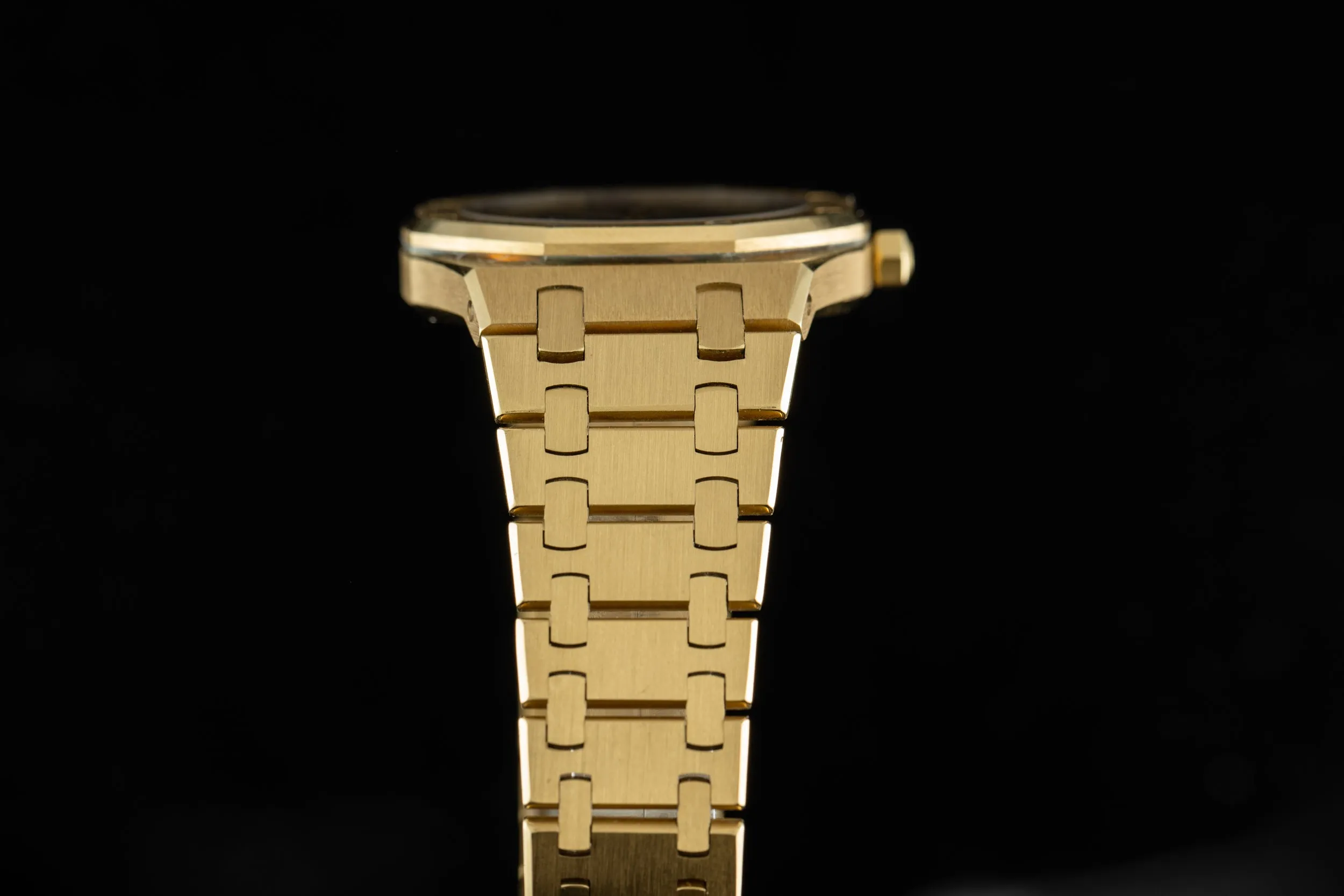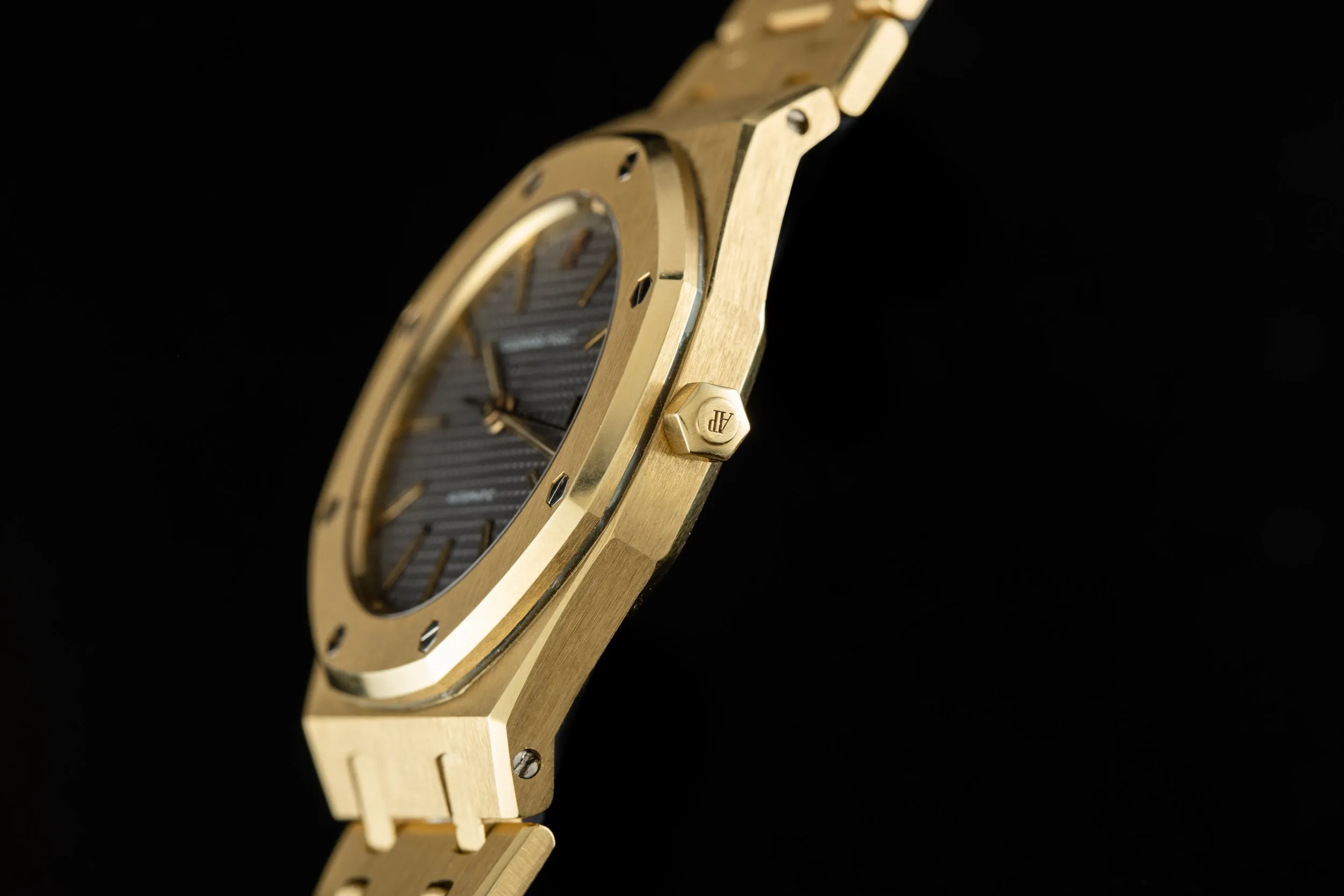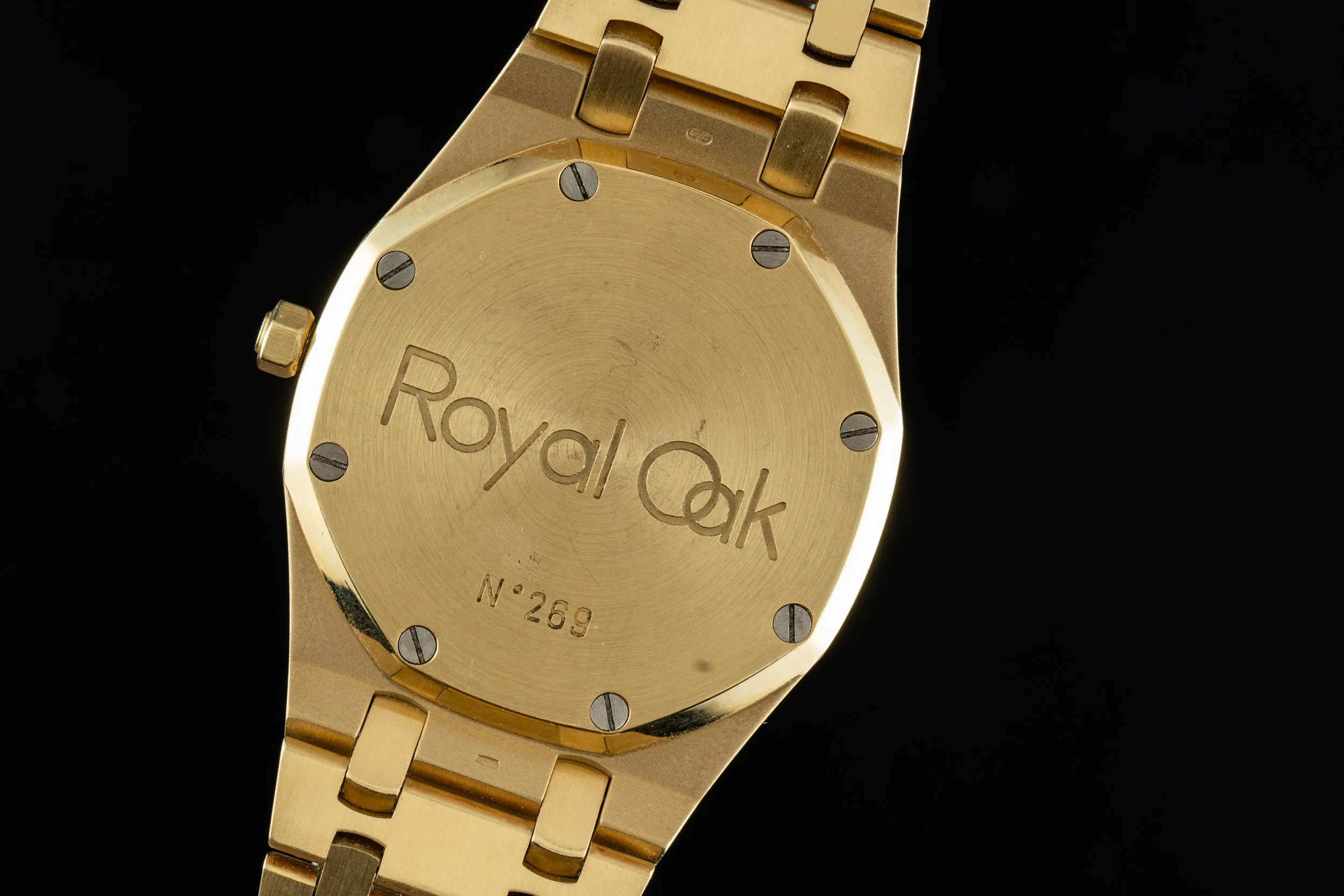Why We Love It
One name: Gerald Genta.
The Audemars Piguet Royal Oak is without question Genta’s most memorable work, and changed the shape of the industry in more ways than one — but it was merely one in a long line of successes that marked Genta’s illustrious career.
What's particularly delightful about the design of the Royal Oak (which was subsequently mimicked by the Patek Philippe Nautilus and the IWC Ingenieur SL), is that it works brilliantly in a number of sizes and casing materials, from steel to carbon fiber or solid gold.
This particular model, a Reference 14486BA, is sized at 35mm and features a gorgeous slate blue micro-tapisserie dial. Wearing slightly smaller than its "Jumbo" predecessors, the 14486BA has become a favorite amongst collectors for its beautiful proportions, wearability, and value proposition.
Wear it once, trust us, you'll have a hard time taking it off.
The Royal Oak Story
Audemars Piguet, the vaunted manufacture from Les Brassus, wasn't doing so well at the end of the 1960s.
Their horological prowess aside, times were changing, customer tastes were evolving, and AP was stuck firmly in a very traditional past. Fortunately for us, their executives recognized this, and bet it all on the launch of an avant garde timepiece the likes of which the world had never seen.
Utilizing the talents of a designer named Gerald Genta, who would make his name for designing this very watch, AP planned from the beginning to make this new watch - dubbed the Royal Oak - a contradiction to tradition, and it became the world's first luxury sports watch. Made in steel. The gamble paid off, and the watch world clamored to get their hands on the cutting edge design, which featured a sharply angled watch with integrated bracelet, micro tapisserie dial, and ultra thin movement.

 Cart(
Cart(
















